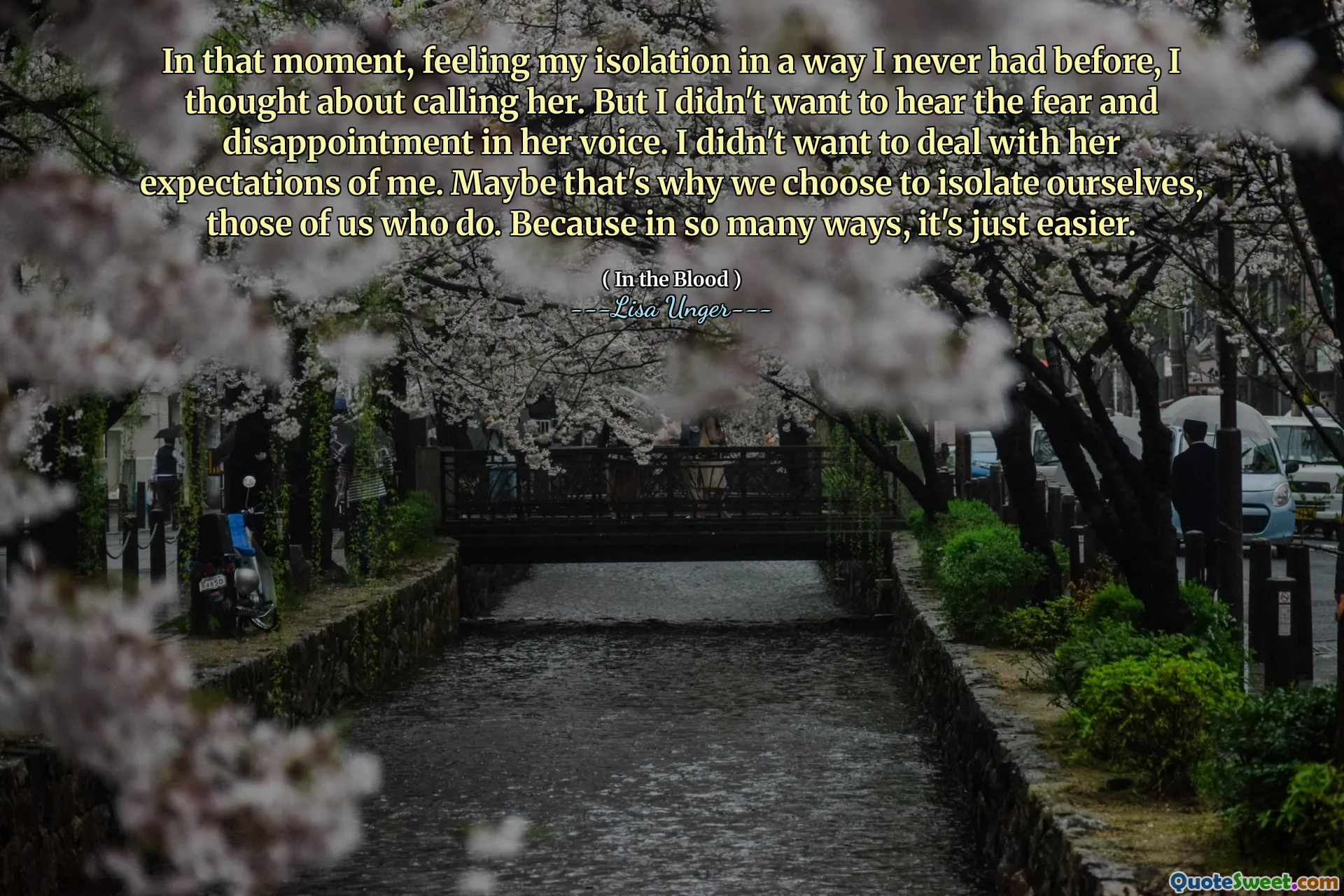
In that moment, feeling my isolation in a way I never had before, I thought about calling her. But I didn't want to hear the fear and disappointment in her voice. I didn't want to deal with her expectations of me. Maybe that's why we choose to isolate ourselves, those of us who do. Because in so many ways, it's just easier.
This quote poignantly captures the complex emotions that underpin human isolation. It speaks to an experience many can relate to—the simultaneous desire for connection and the fear of the vulnerability it requires. The narrator's internal conflict reflects a broader human truth: sometimes isolation is not just a matter of physical solitude but a protective mechanism to shield oneself from emotional pain. The hesitation to reach out, especially to those close to us, can stem from not wanting to face disappointment or the weight of others' expectations. This speaks volumes about the impact that relationships have on our mental and emotional wellbeing. Moreover, the acknowledgment that isolating oneself can feel "just easier" is an honest admission of the emotional energy involved in sustaining connections. It suggests that the cost of engagement—in terms of confronting fears, disappointments, or unmet expectations—can often prompt people to retreat inward. Yet, this isolation, though a temporary refuge, often accentuates feelings of loneliness, as hinted by the narrator’s intensified sense of isolation. There is also an implicit call to understand that those who isolate themselves do so for complex reasons, not merely from a desire to be alone but sometimes as a response to emotional challenges. Through its raw honesty, the quote invites readers to empathize more deeply with the solitary struggles of others and reflects on the human condition's nuanced dimensions of vulnerability and self-preservation.







